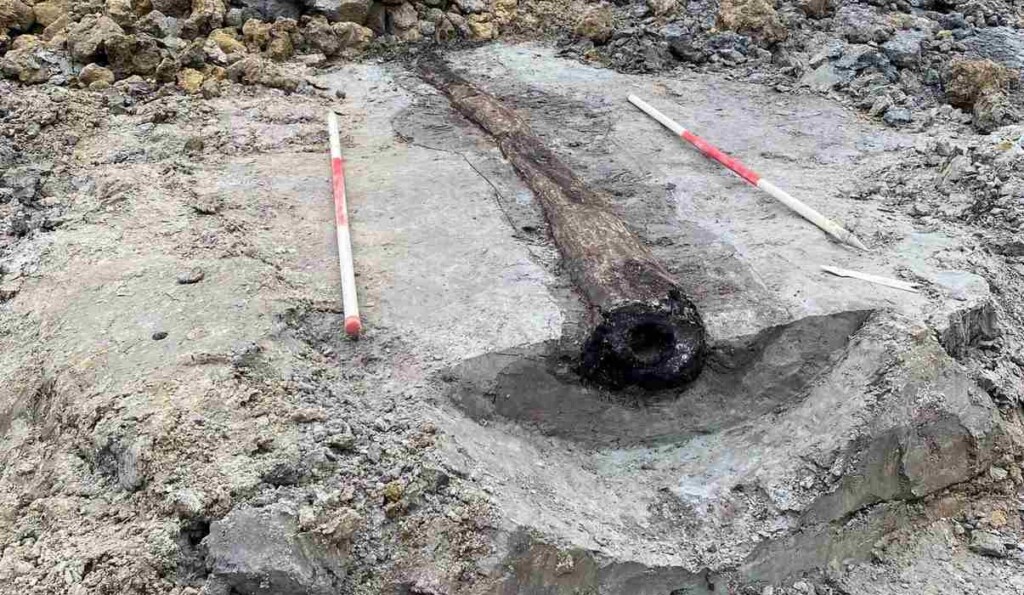 A closeup of one of the tree trunk pipe sections – credit Stad Leuven, retrieved from Facebook
A closeup of one of the tree trunk pipe sections – credit Stad Leuven, retrieved from FacebookUnder the streets of a Belgian city center, an Imperial Roman drainage pipe section made from several hollowed-out tree trunks was recently discovered during excavation work.
That the settlement had some form of underground plumbing system suggests that modern-day Leuven was an integrated and prosperous part of the empire, despite being located over 700 miles from the Eternal City.
When thinking of the Roman Empire, one typically imagines marble, brick, and concrete—the materials which have allowed so many of its monuments to survive until our day.
The pipe is just another method that Roman plumbers must have used to handle hydro-logistics in their settlements, along with towering above-ground and subterranean aqueducts, underfloor piping, and gravity-fed cisterns for water storage.
Leuven city councilmember Dirk Vansina reminded local news reporting on the discovery that the city sits in what is basically a swamp. The muddy earth below preserved the several 5-foot-long hollowed-out tree trunks extremely well, allowing them to survive to this day.
Buried 13-feet down, the pipe section is estimated to have run for about 100 feet.
“The fact that the wood of the water pipe has been exceptionally well preserved makes it a unique finding that contributes to the knowledge of Roman presence in Leuven,” a statement from the city read on Facebook. “The entire water pipe will then be freeze-dried so that it can be optimally preserved and possibly displayed later.”
ROMAN ARCHAEOLOGY: Archaeologists Unearth ‘Exceptionally Rare’ Roman Helmet at the Site of ‘Weapon Sacrifice’
The wooden plumbing suggests that Leuven may have been a Roman “diverticulum,” or a settlement along a military road that connected two separate administrative territories. Modern-day Belgium came into Rome’s hands by way of conquests carried out by Julius Caesar—a regional holocaust in many respects—that brought an area called “Gaul” under the command of Rome.
Gaul was made up of modern-day France and parts of the countries which surround it including Belgium.
AT THE BORDERS OF THE EMPIRE: Spy Satellite Photos Reveal Hundreds of Long-Lost Roman Forts, Challenging Decades-Old Theory
“The fact that we found a water pipe indicates that the settlement must have enjoyed a certain degree of prosperity,” Ben Van Genechten, a project leader at the archaeology company BAAC Flanders, tells the Brussels Times.
Though currently set for dendrochronology work to determine its precise age, the archaeologists suggested the plumbing system would probably be between 1,800 and 1,700 years old.
SHARE This Example Of Roman-Era Frontier Plumbing With Your Friends…
Source link

